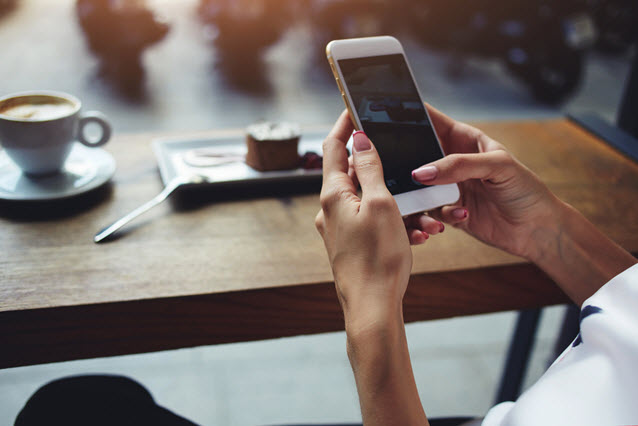Addicted to Your Cell Phone? 5 Ways to Break the Habit
Cell phones are useful and practically necessary, but with the prevalence of cell phones now, overusing your device is a greater risk than ever. Some people can’t function without their cell phone and if they lose their phone, they’ve lost their entire life – email, banking information, digital books, music, contact information and more. With access to virtually everything you could possibly need right in the palm of your hand, it’s no wonder our reliance on these devices is so strong. Granted, not everyone is this attached to their phone, but for many people cell phones have become a regular part of life and, for some, even a serious addiction.
Are you guilty? If so, you’re not alone. We rely heavily on these devices, but that doesn’t mean our devices should control us. There are plenty of ways to break free and learn how to live without a phone attached to your hip.
1. Turn off notifications.
Notifications send alerts whenever somebody contacts you via messaging app or social media; you may also receive notifications from other apps you use. This can be a convenient feature, but with your phone buzzing and ringing throughout the day, there’s also a tendency of becoming absolutely distracted by your phone.
If your phone habits are getting out of hand, turn off your notifications. With fewer reminders, it’ll become easier to stay focused and get your work done.
2. Keep your cell phone out of sight.
Keeping your cell phone within earshot is necessary if you want to hear it when it rings, but that doesn’t mean you have to keep your eyes on it, too.
When your phone is within arm’s reach, like on your lap or a side table, you’re more likely to grab it for no apparent reason and start looking up random information. Or you may check social media or frequently play games. This can distract from important matters and contribute to your addiction. If you keep your phone in another room or inside a bag, it’s less likely to become a crutch when you’re bored. As the saying goes, out of sight, out of mind.
3. Don’t link your email.
Cell phones give us the option of linking an email address, allowing us to check our email from any location. Some people like this feature, but if you’re looking to strike a healthier work-life balance, keeping emails off your smartphone is an excellent starting point.
Instead, enjoy time with family and friends without worrying about work. Of course, this isn’t an option for everyone. Depending on your job, you might need to be available by email after hours, but consider talking to your boss about striking a healthier balance. Maybe you can check in on email on your desktop and leave your phone out of it.
4. Delete social media apps.
This isn’t the same as deleting your social media accounts. Social media apps on your phone and tablet can be a major distraction throughout the day. If you only check social media accounts from your laptop, which isn’t always open and at your side, you’ll become less dependent on social media for entertainment. Instead of checking your accounts several times a day, you’ll lower your check-ins to only a few times a week.
5. Keep your cell phone out of the bedroom.
Keeping your cell phone in the bedroom increases the chance of mulling around on your phone before bed, or grabbing your phone as soon as you wake up in the morning, fueling your addiction.
Do you currently use your cell phone as an alarm clock near your bedside? Though this eliminates the need for a separate device, you may want to invest in an old-fashioned alarm clock and put some distance between you and your phone.
Despite what you might think, it is possible to survive without a cell phone. People did it for years, so the world won’t stop turning if you choose to set limits. No one is suggesting turning back the hands of time – all you’re doing is taking back your control and detaching from something that may have an unhealthy hold on you.
